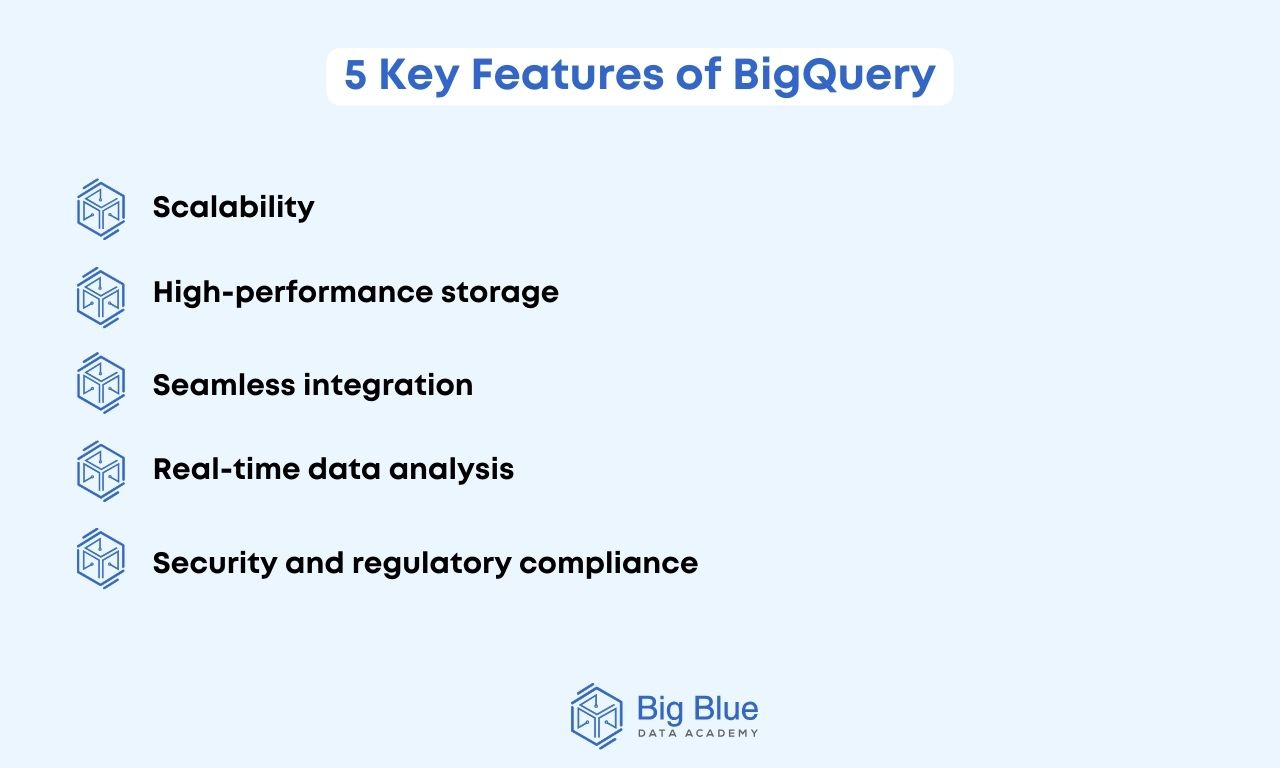BigQuery: Importance, Use Cases and Main Features (2024)
Google constantly demonstrates its high potential both in the field of machine learning, with the introduction of the Gemini AI model, developed by Google DeepMind, and in the various big data analytics tools it has developed.
More specifically, a particularly important and popular tool is BigQuery, a fully managed serverless data warehouse offered by Google Cloud Platform (GCP).
So in today's article, we will see in detail:
- What is BigQuery and why is it important?
- What are its main characteristics?
- Where it is used very effectively
Before we dive in, let's start with a basic definition.
What is BigQuery?
BigQuery is a fully managed data warehouse for serverless enterprise data offered by the Google Cloud Platform.
It has the ability to support all types of data and is designed to be multi-format and multi-cloud, offering built-in machine learning capabilities in a unified platform.
Essentially, it is a Platform as a Service (PaaS) that became available to the general public in November 2011.
BigQuery is built to manage and analyze large data sets using SQL-style queries.
Additionally, it's worth noting that BigQuery's pricing is based on a pay-as-you-go model.
After seeing some basics about BigQuery, let's see what are the key features that make it so special.
What Are the Key Features of BigQuery?
The key features of BigQuery are as follows:

Feature #1: Scalability
BigQuery is built and developed to be able to handle huge data sets, making it suitable for organizations and businesses of all sizes.
It can scale seamlessly to meet the needs of both smaller companies such as startups as well as much larger enterprises.
Feature #2: High-performance storage
BigQuery provides a high-performance storage system specifically designed and optimized for analytics workloads.
It can store structured, semi-structured, and unstructured data including JSON, Avro, and Parquet.
Feature #3: Seamless integration
BigQuery integrates seamlessly with other Google Cloud services, such as Google Cloud Storage (GCS), Google Cloud Dataflow, and Google Cloud Machine Learning Engine.
Feature #4: Real-time data analysis
BigQuery supports real-time data analysis through integrations with services such as Apache Kafka.
Thanks to this feature, data analysts can analyze big data in real-time whenever this is necessary such as in cases of fraud detection and recommendations.
Feature #5: Security and regulatory compliance
Continuing, BigQuery offers strong security features such as encryption, identity, and access management controls, and compliance certifications such as HIPAA.
Next, we've rounded up some of the most important BigQuery use cases.
What Are BigQuery's Key Use Cases?
BigQuery is widely used in various fields and businesses.
Some of the most basic use cases for BigQuery are:
Use #1: Business Intelligence (BI)
Organizations and companies use BigQuery to analyze large data sets, gain critical insights into their business operations, and use the insights to make strategic decisions.
Use #2: Marketing
BigQuery can be used to store and analyze data from Google Analytics, and CRM systems, enabling marketing professionals to identify trends that may not be visible with Google Analytics alone.
Use #3: E-commerce
BigQuery is extensively used in the field of e-commerce and retail.
Businesses in this industry use Bigquery to analyze data such as customer behavior and sales trends.
Use #4: Financial industry
The use and importance of BigQuery extends to the financial industry.
For example, BigQuery is highly leveraged by banks for fraud detection, risk assessment, and customer segmentation.
In a Nutshell
We have seen what BigQuery is, what are the main features that distinguish it, and how it is used very effectively to analyze large volumes of data.
So if you're involved in this subject and want to enrich your knowledge, read more related articles on our blog


.jpg)